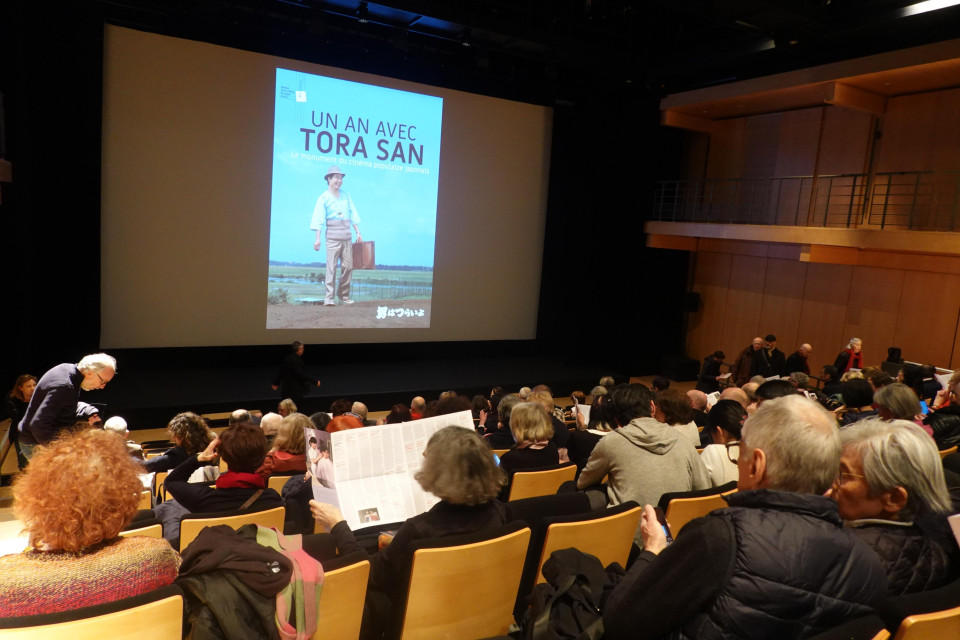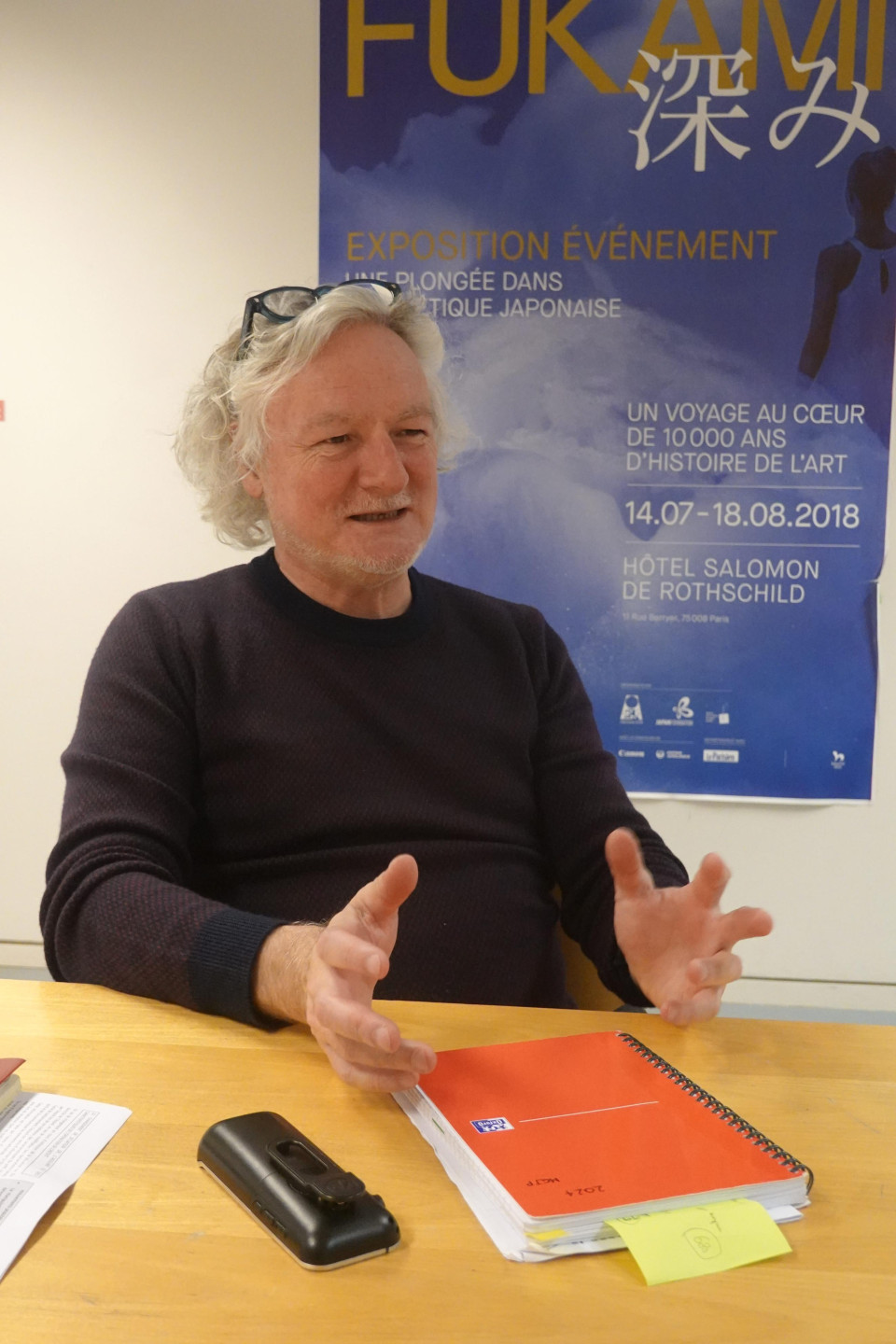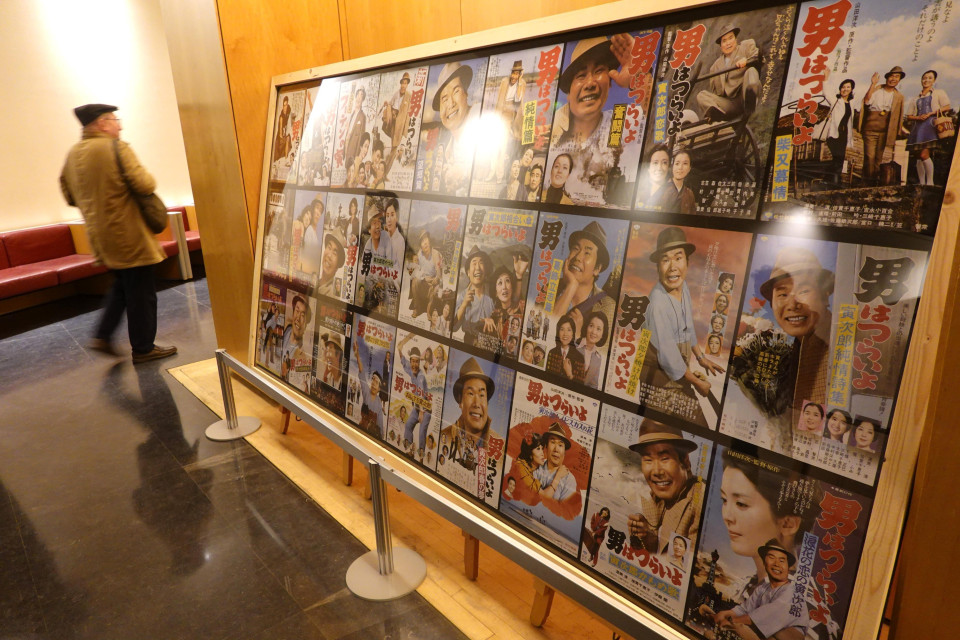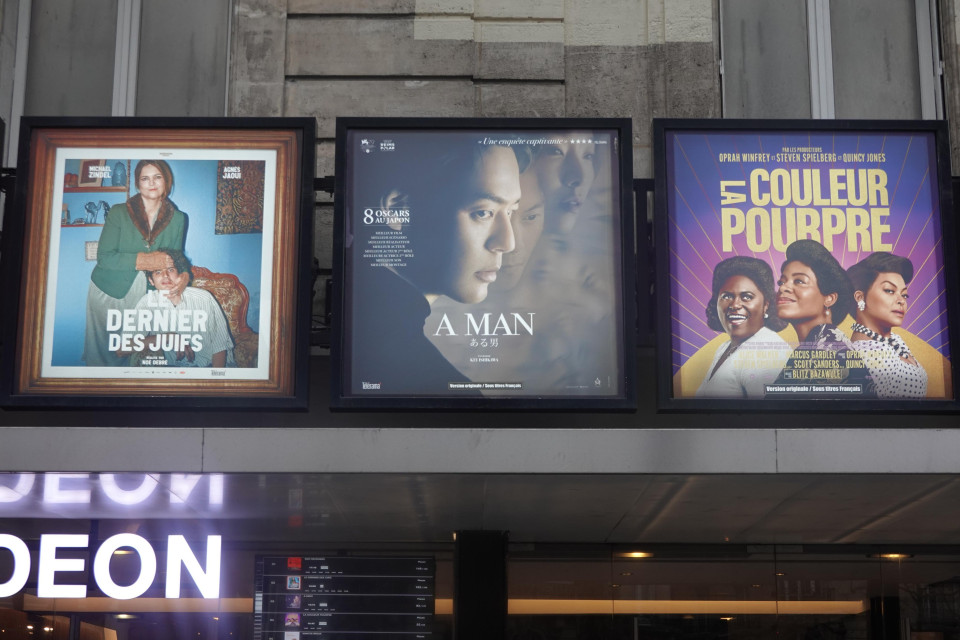In March, film buffs in Paris descended on the Maison de la Culture du Japon for the final installment of a Japanese movie series about a traveling salesman who is unlucky in love that had run for decades in its homeland.
The 280-seat hall was filled to near capacity, and after enthusiastic applause at the end, many in the audience expressed sadness that after 50 films, the "Otoko wa Tsurai yo" series, had finally reached its conclusion.

In all, the showing of what was one of Japan's most popular movie franchises drew over 10,000 filmgoers to the cultural institute over its more than two-year run, in some of the clearest evidence yet that French interest in Japanese cinema, long restricted to arthouse classics, is now broadening to more mainstream releases.
Titled in English "It's Tough Being a Man," the series had 48 installments between 1969 to 1995 in Japan and starred Kiyoshi Atsumi as Tora-san, who is invariably left brokenhearted at the end of each episode. Evoking the spirit of Tokyo's old "shitamachi" downtown and family life in simpler times during the postwar Showa era of the 1950s and 1960s, the series has iconic status in Japan.
All of the films except episodes 3 and 4 were directed by Yoji Yamada. Two more editions were released in 1997 and 2019 respectively, the latter with Atsumi, who had died in 1996, appearing in flashbacks, using footage from his previous performances as Tora-san in the series.

The screenings in Paris, which began in November 2021, were initially planned to be more limited in scope, lasting for about a year. But with audiences falling for the affable and free-spirited main character Tora-san, they were extended, becoming the first time the series had ever been shown in its entirety outside Japan.

Fabrice Arduini, the longtime film department head at the Maison du Culture, said, "French people perceive Tora-san's value of 'cherishing family' as conservative and not very relatable. But the human side of Tora-san, such as his love of his itinerant life and always being heartbroken, come across well."
Arduini said he had wanted to screen the "Tora-san" films earlier but had initially met resistance from fans who looked to Japanese cinema only for more artistic films.
But an overwhelmingly positive reception confirmed that "audience demographics and tastes are changing. Many people said they wanted to go to Japan after seeing 'Tora-san'," Arduini said, adding that he hopes to introduce "Free and Easy" (Tsuribaka Nisshi), a successful comedy series by director Tomio Kuriyama, among other popular film titles.
Elsewhere, Cinematheque Francaise, a film culture organization in Paris, featured a special program on director Kenji Misumi, known for his "Zatoichi series," about a traveling blind masseur-cum-swordsman of Japan's Edo period in the 1830s and 1940s. Misumi's work was widely covered by French daily Le Monde and other media.
Japanese films are being well-received at general movie theaters as well. "Evil Does Not Exist" by Ryusuke Hamaguchi, the winner of the Silver Lion award at last year's Venice International Film Festival, "Small, Slow but Steady" by Sho Miyake and Kei Ishikawa's "A Man" are among a string of new commercial releases from Japanese directors winning plaudits with French audiences.

Yuko Tanaka, a film journalist living in Paris, pointed out that "companies that used to distribute a lot of Japanese films used to handle art films for cinephiles (movie buffs), but recently they are distributing more commercial films because they know they are popular among Japanophiles and general audiences."
In recent years, films such as "The Asadas," the biographical drama based on real-life photographer Masashi Asada starring Kazunari Ninomiya, and a host of other Japanese films have gained commercial success, she added.
Pascal-Alex Vincent, a French director and author who teaches Japanese cinema at the Sorbonne Nouvelle University, has seen a sharp rise in students attending his lectures as a result of brisk sales of his recently published book on highly regarded Japanese filmmaker Yasujiro Ozu.

"The popularity of Japanese films is palpable," he said, adding that the penetration of Japanese culture in French society, including manga and food, is also behind the allure.
"French people have gotten into the habit of going to see Japanese films the same way they go to see American films. This is a testament to the high quality of Japanese films," Vincent said.
Related coverage:
FEATURE: Film shows rural Japan's changing face through eyes of mythic critter
FEATURE: "Tour of lies" stretches imagination in Tokyo's Asakusa
Fans flock to Hokkaido station featured in film as line section closes
 By Hiroshi Tanaka,
By Hiroshi Tanaka,









